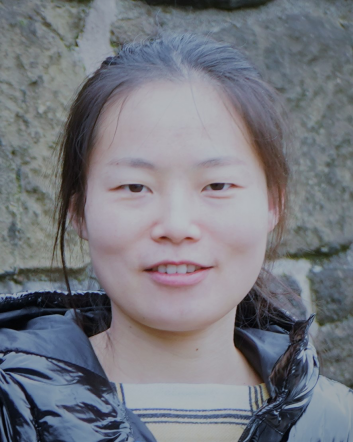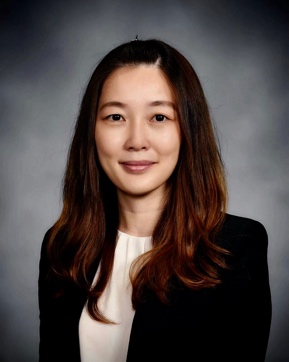
We are pleased to announce that the Workshop & Special Session on Multimodal Data-Driven Optimization will be held during the 2025 IEEE Congress on Evolutionary Computation (IEEE CEC). The IEEE CEC, one of the flagship conferences of the IEEE Computational Intelligence Society (IEEE CIS), was first held in 1994 in Orlando, Florida, USA, under the title "IEEE Evolutionary Computation Symposium". It has since become a central event in the field of evolutionary computation. The conference features many exciting keynotes, tutorials, and panel discussions.
This workshop & special session will focus on topics such as multimodal data-driven optimization and applications. We warmly welcome your submissions and participation in this thematic workshop!
Workshop & Special session : Multimodal Data-Driven Optimization (MMDO- CEC2025)
Jun 8-12 , 2025, Hangzhou, China
https://www.cec2025.org/index/page.html?id=1391
Overview
With rapid advancements in data science and artificial intelligence, multimodal data-driven optimization, including evolutionary optimization, swarm optimization and neural optimization, is becoming increasingly critical across a wide range of applications. So far, most data-driven optimization algorithms can make use of numerical data only, while in the real world, many other modalities of data are available. By integrating diverse data types — such as text, images, audio, and structured data, we expect that we can significantly improve the optimization performance in the presence of data paucity.
Additionally, the emergence of Large Language Models (LLMs) and diffusion optimization techniques offers new opportunities to further enhance these methodologies. This workshop aims to bring together researchers, practitioners, and industry experts to explore the latest developments, challenges, and applications in multimodal data-driven optimization, with a particular focus on graph neural networks, diffusion models and large language models, and the integration of these techniques with evolutionary and swarm optimization algorithms.
Topics include but are not limited to
-
-
Multimodal Data-Driven Optimization Algorithms and Frameworks
-
Evolutionary and Swarm Optimization with Multimodal Data
-
Neural Combinatorial Optimization with Multimodal Data
-
Large Language Models (LLMs) / Diffusion Models for Optimization
-
Federated Learning Optimization in Multimodal Contexts
-
Reinforcement Learning Approaches in Multimodal Optimization
-
Transfer Learning and Domain Adaptation in Multimodal Optimization
-
Causal Inference and Reasoning in Multimodal Optimization
-
Explainable AI and Interpretability in Multimodal Optimization Models
-
Benchmarking and Evaluation Metrics for Multimodal Optimization Methods
-
Real-World Applications of Multimodal Optimization in Medicine, Finance, Manufacturing, Robotics, ect.
-
Please follow the IEEE CEC 2025 Submission Website to prepare and submit the paper ( https://openreview.net/group?id=IEEE.org/CEC/2025).
1)Workshop papers accepted will not be published in the main proceedings.
When submitting your paper, please select: CEC2025-Workshop: Multimodal Data-Driven Optimization: MMDO
2)Special session papers are treated the same as regular conference papers. All papers accepted and presented at IEEE WCCI/CEC 2025 will be included in the conference proceedings published by IEEE Xplore Digital Library and indexed in all major databases (e.g., EI Index, DBLP).
When submitting your paper, please select: CEC2025-SS-09: Special Session on Multimodal Data-Driven Optimization
In particular, all oral presentation papers submitted and accepted for the IEEE CEC "Multimodal Data-Driven Optimization" Workshop or Special Session will be recommended for publication in a special issue of Mathematics (SCI Index,,Q1).
https://www.mdpi.com/si/mathematics/HF047E4Z95
Important Dates
-
31 January 2025: Paper Submission Deadline -
15 March 2025: Paper Acceptance Notification (CEC2025-SS-09) - 30 March 2025: Paper Acceptance Notification (CEC2025-Workshop)
-
1 May 2025: Final Paper Submission & Early Registration Deadline -
8-12 June 2025: Conference Date

-
Assoc. Prof. Xueming Yan
Xueming Yan (Senior Member, IEEE) received her Ph.D. degree in Computer Science from South China University of Technology, Guangzhou, China, in 2018. She is currently an associate professor in the School of Information Science and Technology at Guangdong University of Foreign Studies. She was a visiting scholar in the Department of Computer Science at the University of Surrey, United Kingdom, in 2021, and a postdoctoral associate in the Faculty of Technology at Bielefeld University, Germany, in 2022. Her current research interests include computational intelligence, neural combinatorial optimization, multimodal learning, and AI for assisted medical diagnosis. She has published more than 40 papers in refereed journals and conferences, such as IEEE TEVC, IEEE TNNLS, IEEE TETCI, IEEE CIM, Information Sciences, KBS, and NeurIPS. Dr. Yan also actively contributes to the scientific community as a Symposium Chair & Technical Activities Liaison/Strategist for IEEE SCCI 2025, and a Technical Program Committee Chair for NNNLP 2025, as well as a reviewer for prestigious journals and conferences. She is currently an Associate Editor for Complex & Intelligent Systems, and also an Associate Editor for Neurocomputing. She is the secretary of the IEEE CIS Guangzhou Chapter. She is a recipient of the DOCS 2023 Best Student Paper Award and the CSIS-IAC 2023 Best Paper Award. (Email:[email protected] )

-
Dr. Qiqi Liu
Qiqi Liu received her Ph.D. degree in Computer Science from the University of Surrey, United Kingdom, in 2022. She was a research scientist at Bielefeld University, Germany, from January 2022 to September 2022, and a lecturer at Hebei University of Technology, Tianjin, China, from February 2023 to December 2023. She is currently a postdoc at Westlake University. She was awarded the 2022 Chinese Government Award for Outstanding Self-financed Students Abroad by the China Scholarship Council. Her current research interests include federated data-driven evolutionary optimization, federated Bayesian optimization, multi-objective evolutionary optimization, and large language models for optimization. She is a member of the Editorial Board of Complex & Intelligent Systems and a regular reviewer for IEEE Transactions on Evolutionary Computation, Swarm and Evolutionary Computation, and Complex & Intelligent Systems. She is a recipient of the DOCS 2023 Best Student Paper Award. (Email: [email protected] )

Assoc. Prof. Lifang He
- Lifang He is currently an Associate Professor in the Department of Computer Science and Engineering at Lehigh University. She received the B.S. degree in Computational Mathematics from Northwest Normal University in 2009, and the Ph.D. degree in Computer Science from South China University of Technology in 2014. Before joining Lehigh, she was a postdoc associate in the Perelman School of Medicine at University of Pennsylvania, and the Weill Cornell Medical College of Cornell University. Her research interests primarily focus on machine learning/deep learning, multimodal data mining, and tensor analysis, with major applications in social science and neuroscience. She has published over 170 papers in refereed journals and conferences, achieving an H-index of 45 and more than 7,800 citations. Dr. He also actively contributes to the scientific community not only as a reviewer and program committee member for prestigious journals and conferences, including IEEE TMI, TPAMI, TNNLS, TKDE, Bioinformatics, NeurIPS, ICML, AAAI, and CVPR, but also as a (co)organizer for multiple conferences such as PSB, CHIL, SDM and IEEE SSCI. She currently serves as Associate Editor for the International Journal of Machine Learning and Cybernetics and Artificial Intelligence in Radiology for Frontiers, and she is the chair of the Computer Science Chapter at the IEEE Lehigh Valley Section. (Email: [email protected])

-
Prof. Yaochu Jin
Yaochu Jin (Fellow, IEEE) is Chair Professor of AI, School of Engineering, Westlake University. He was an Alexander von Humboldt Professor for AI endowed by the German Federal Ministry of Education and Research, Faculty of Technology, Bielefeld University, Germany. He is also a Distinguished Chair in Computational Intelligence, Department of Computer Science, University of Surrey, Guildford U.K. He was a “Finland Distinguished Professor”, University of Jyvaskyl ¨ a, Finland, “Changjiang Distinguished ¨ Visiting Professor”, Northeastern University, China, and “Distinguished Visiting Scholar”, University of Technology Sydney, Australia. His main research interests include evolutionary optimization, evolutionary learning, trustworthy machine learning, and evolutionary developmental systems. Prof. Jin is presently the Editor-in-Chief of Complex & Intelligent Systems and President of the IEEE Computational Intelligence Society. He was an IEEE Distinguished Lecturer, the Vice President for Technical Activities of the lEEE Computational Intelligence Society, and the Editorin-Chief of the IEEE Transactions on Cognitive and Developmental Systems. He is the recipient of the 2025 IEEE Frank Rosenblatt Award. He was named by the Web of Science as “a Highly Cited Researcher” from 2019 to 2024 consecutively. He is a Member of Academia Europaea. (Email: [email protected])











評(píng)論 0